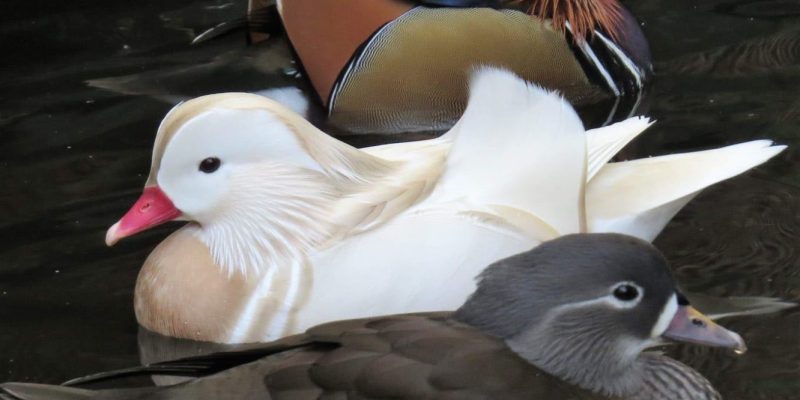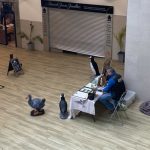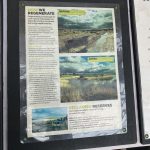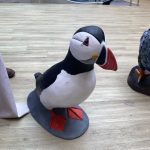Annette’s Fibreglass and Figurines make sculptures of endangered and extinct birds to help draw people to the cause.
The sculptures will raise awareness of endangered birds and aid in protection to care of the bird population.
Allan April Dalley from Annette’s Fibreglass and Figurines spoke about his view on the sculptures made: “I think they [birds] all need a little bit of protection and help, any help.
“A good zoo is a good place, it’s a win-win, at the end of the day they’re dying, and it breaks my heart to see that. It’s terrible to see”.
The statues include animals such as: African greys, ferrets, dogs, ducks, parrots, puffins, and more UK known, kingfishers.
Some of the figurines were made by Maltese sculptor, Rachel Farrugia.
One of the sculptures includes a Dodo, which has been extinct for almost 30 years, was brought about by Mr Dalley and was made by a Polish sculptor.
Allan also spoke about the reason why he picked those statues: “The puffin is quite endangered now, as well as the awk, and the dodo are both extinct.
“People need to wake up and understand that they are going to miss all these wonderful things when they’re gone and then it’s too late.
“I think that we should do more to spread awareness if we can get some backers, we can make some bigger sculptures”.
The RSPB Wildlife Charity carry out conservation work across the world to protect habitats and save species. These donated sculptures are a benefit to help raise awareness of the decreasing the bird species.
Martin Cade is a keen birdwatcher towards migratory birds, ones that spend the winter in hotter places like Africa, and then come back to Britain to spend the summer and breed.
He spoke about one of Britain’s only migratory birds, the turtle dove, and how they have decreased in population: “The turtle dove, which used to be very common, spends its summer in Africa, and its numbers have collapsed calamitously. It is very likely in the next few years will be on the edge of their range. It’s the more iconic one.
“It’s things like farming practices that are causing the drop, the turtle dove feasts on small seeds and wheat plants on the edge of crops, and as farmers are cleaning everything up, the turtle doves don’t have anything to feed on.
“The turtle dove is here, at home, and they’re disappearing in front of our eyes, which is a bit sad.”
The RSPB hope actions like these will help save endangered birds.





 Cook set to miss Forest clash
Cook set to miss Forest clash